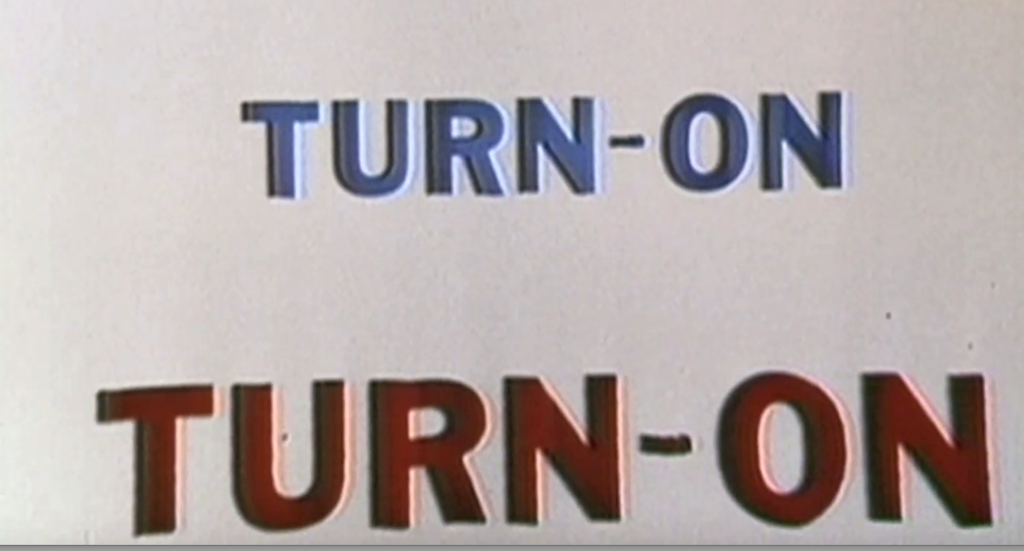Revisit “Turn-On,” the Innovative TV Show That Got Canceled Right in the Middle of Its First Episode (1969)

It may give you pause, at least if you’re past a certain age, to consider the disappearance of the word computerized. Like portable, it has fallen out of use due to the sheer commonness of the concept to which it refers: in an age when we all carry portable computers in our pockets, neither portability nor computerization are any longer notable in themselves. But there was a time when to call something computerized lent it a futuristic, even sexy air. Back in 1969, just a few months before the United States’ decisive victory in the Space Race, ABC aired “the First Computerized TV Show,” a half-hour sketch-comedy series called Turn-On. Or rather, it would’ve been a series, had it lasted past its first broadcast.
Turn-On was created by Ed Friendly and George Schlatter, the producers of Rowan & Martin’s Laugh-In on NBC. With that sketch comedy show having quickly become a major cultural phenomenon, Friendly and Schlatter used their new project to purify and greatly intensify its concept: the sketches became shorter, some of them lasting mere seconds; the material became more topical and risqué; the humor became more absurd, at times verging on nonsensical.
But Turn-On‘s most striking break from convention was the elimination of the role of the host, replacing them with a formidable-looking computer console that was ostensibly generating the show according to the instructions of its anonymous programmers.
Though its central computer was a fiction, Turn-On really did use technology in ways never before seen or heard on television. Instead of a laugh track, it was saturated with the novel sounds of the Moog synthesizer (whose capabilities had been popularly demonstrated the previous year by Wendy Carlos’ Switched-On Bach). Instead of proper sets, its troupe performed against the kind of white void later associated with Gap commercials; often, that space would separate into comic-strip panels right onscreen. Its dance sequences even made use of an early motion-capture system. Alas, none of these innovations saved the show from being pulled off the air just fifteen minutes into its debut by Cleveland’s WEWS. That decisive rejection set off a cascade, and several stations on the west coast subsequently elected not to broadcast it at all.
Schlatter remains a defender of Turn-On, blaming its rejection on a vindictive fan of the show whose time slot it took, the declining prime-time rural soap opera Peyton Place. Now that both the first and never-aired second episodes have surfaced on Youtube, you can watch and judge them for yourself, assuming you can handle a frenzied disjointedness that makes TikTok videos feel stately by comparison. The objects of these often-absurd salvos — campus protests, anti-communism, “the new math,” nuclear annihilation, the pill, Richard Nixon — may be dated, but at this historical distance, we can better appreciate what Ernie Smith at Tedium calls a “sharp commentary on an increasingly direct and impersonal culture.” And if we also take Turn-On as a statement on the nature of entertainment generated by artificial intelligence, we can credit it with a certain prescience as well.
via Boing Boing
Related content:
Watch Steve Martin Make His First TV Appearance: The Smothers Brothers Comedy Hour (1968)
Based in Seoul, Colin Marshall writes and broadcasts on cities, language, and culture. His projects include the Substack newsletter Books on Cities, the book The Stateless City: a Walk through 21st-Century Los Angeles and the video series The City in Cinema. Follow him on Twitter at @colinmarshall or on Facebook.


